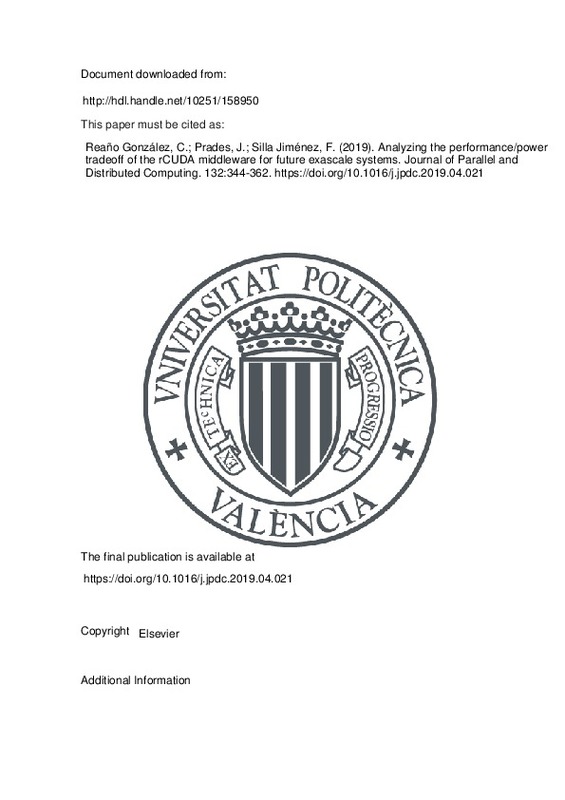JavaScript is disabled for your browser. Some features of this site may not work without it.
Buscar en RiuNet
Listar
Mi cuenta
Estadísticas
Ayuda RiuNet
Admin. UPV
Analyzing the performance/power tradeoff of the rCUDA middleware for future exascale systems
Mostrar el registro completo del ítem
Reaño González, C.; Prades, J.; Silla Jiménez, F. (2019). Analyzing the performance/power tradeoff of the rCUDA middleware for future exascale systems. Journal of Parallel and Distributed Computing. 132:344-362. https://doi.org/10.1016/j.jpdc.2019.04.021
Por favor, use este identificador para citar o enlazar este ítem: http://hdl.handle.net/10251/158950
Ficheros en el ítem
Metadatos del ítem
| Título: | Analyzing the performance/power tradeoff of the rCUDA middleware for future exascale systems | |
| Autor: | ||
| Entidad UPV: |
|
|
| Fecha difusión: |
|
|
| Resumen: |
[EN] The computing power of supercomputers and data centers has noticeably grown during the last decades at the cost of an ever increasing energy demand. The need for energy (and power) of these facilities has finally ...[+]
|
|
| Palabras clave: |
|
|
| Derechos de uso: | Reconocimiento - No comercial - Sin obra derivada (by-nc-nd) | |
| Fuente: |
|
|
| DOI: |
|
|
| Editorial: |
|
|
| Versión del editor: | https://doi.org/10.1016/j.jpdc.2019.04.021 | |
| Código del Proyecto: |
|
|
| Agradecimientos: |
This work was funded by the Generalitat Valenciana under Grant PROMETEO/2017/077. Authors are also grateful for the generous support provided by Mellanox Technologies Inc and for the equipment donated by NVIDIA Corporation.[+]
|
|
| Tipo: |
|







![[Cerrado]](/themes/UPV/images/candado.png)


